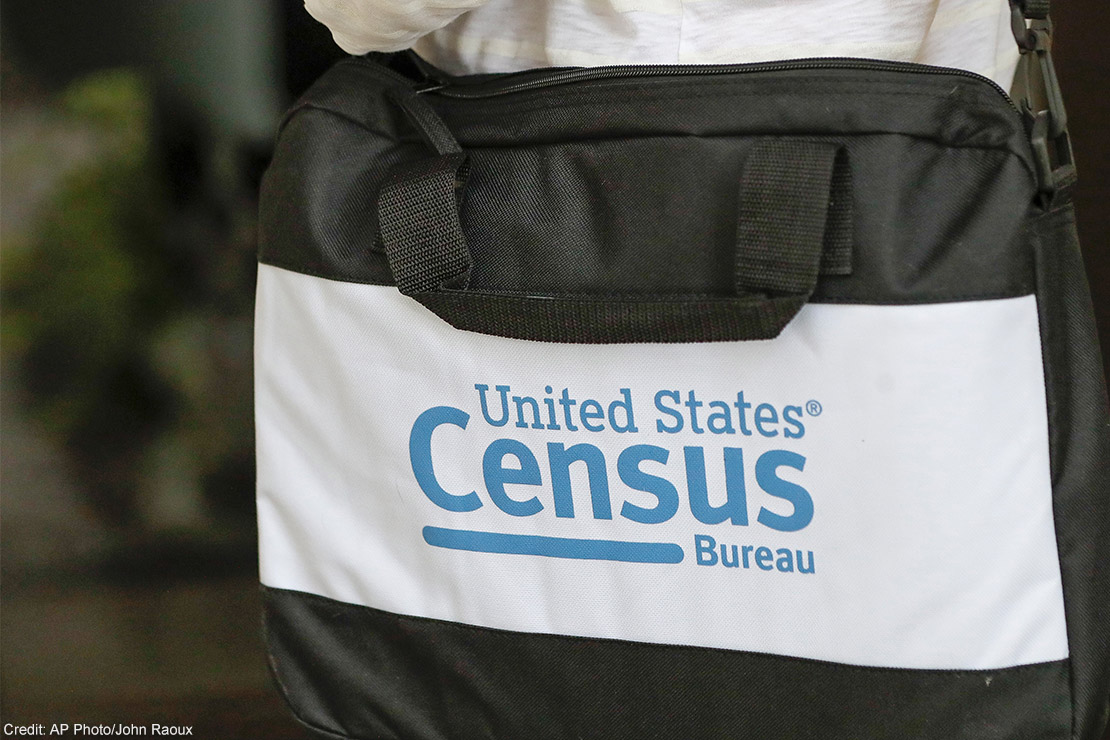Voting Rights
Missouri v. U.S. Department of Commerce
A coalition of civil rights and immigrant-rights organizations has moved to intervene as defendants in a lawsuit that threatens to dismantle the Constitution’s long-standing requirement that the decennial census count all people living in the United States. Missouri asks the court to exclude undocumented immigrants and people living in the country on temporary visas from the census count used to determine congressional representation—an unprecedented move that would upend more than two centuries of constitutional practice.
Status: Ongoing
View Case
Learn ºìÐÓÊÓƵ Voting Rights
Featured
Mississippi
Dec 2025
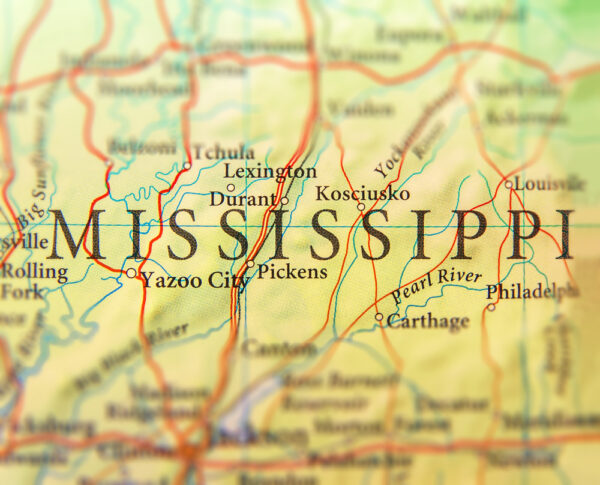
Voting Rights
White v. Mississippi State Board of Elections
District lines used to elect Mississippi’s Supreme Court have gone unchanged for more than 35 years. We’re suing because the current lines crack the Mississippi Delta and dilute the voting strength of Black Mississippians in state Supreme Court elections, in violation of the Voting Rights Act.
U.S. Supreme Court
Nov 2025

Voting Rights
Racial Justice
Allen v. Milligan
Whether Alabama’s congressional districts violate Section 2 of the Voting Rights Act because they discriminate against Black voters. We succeeded in winning a new map for 2024 elections which, for the first time, has two congressional district that provide Black voters a fair opportunity to elect candidates of their choosing despite multiple attempts by Alabama to stop us at the Supreme Court. Despite this win, Alabama is still defending its discriminatory map, and a trial was held in February 2025 to determine the map for the rest of the decade.
In May 2025, a federal court ruled that Alabama's 2023 congressional map both violates Section 2 of the Voting Rights Act and was enacted by the Alabama Legislature with racially discriminatory intent.
Washington, D.C.
Oct 2025

Voting Rights
League of Women Voters Education Fund v. Trump
On March 25, 2025, in a sweeping and unprecedented Executive Order, President Trump attempted to usurp the power to regulate federal elections from Congress and the States. Among other things, the Executive Order directs the Election Assistance Commission—an agency that Congress specifically established to be bipartisan and independent—to require voters to show a passport or other citizenship documentation in order to register to vote in federal elections. If implemented, the Executive Order would threaten the ability of millions of eligible Americans to register and vote and upend the administration of federal elections.
On behalf of leading voter registration organizations and advocacy organizations, the ºìÐÓÊÓƵ and co-counsel filed a lawsuit to block the Executive Order as an unconstitutional power grab.
U.S. Supreme Court
Oct 2025
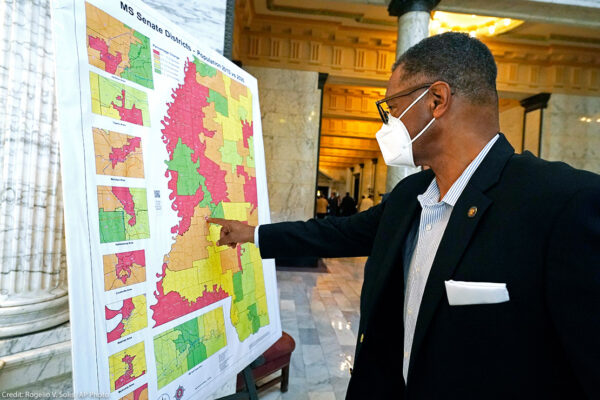
Voting Rights
State Board of Election Commissioners v. Mississippi State Conference of the NAACP
Mississippi has a growing Black population, which is already the largest Black population percentage of any state in the country. Yet. Black Mississippians continue to be significantly under-represented in the state legislature, as Mississippi’s latest districting maps fail to reflect the reality of the state’s changing demographics. During the 2022 redistricting process, the Mississippi legislature refused to create any new districts where Black voters have a chance to elect their preferred representative. The current district lines therefore dilute the voting power of Black Mississippians and continue to deprive them of political representation that is responsive to their needs and concerns, including severe disparities in education and healthcare.
U.S. Supreme Court
Oct 2025

Voting Rights
Louisiana v. Callais (Callais v. Landry)
Whether the congressional map Louisiana adopted to cure a Voting Rights Act violation in Robinson v. Ardoin is itself unlawful as a gerrymander.
Missouri
Sep 2025
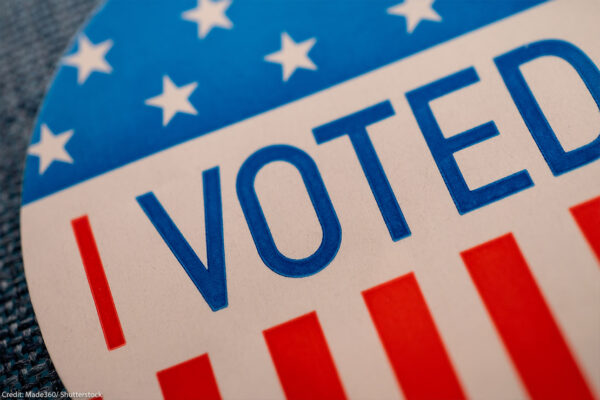
Voting Rights
Wise v. Missouri
In unprecedented fashion, the State of Missouri has redrawn the district lines used for electing members of Congress for a second time this decade. These new district lines are gerrymandered and will harm political representation for all Missourians, particularly Black residents in Kansas City, who have been divided along racial lines.
All Cases
190 Voting Rights Cases
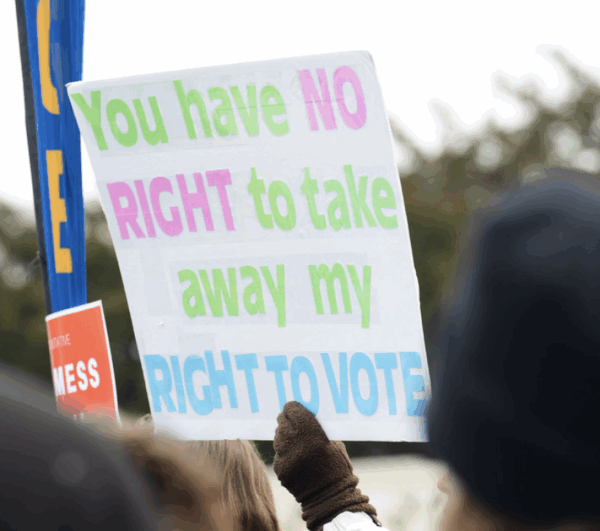
U.S. Supreme Court
Jun 2025
Voting Rights
O'Bannon v. King
Virginia permanently disenfranchises all people with felony convictions unless the governor restores their rights. This lawsuit—brought by the ºìÐÓÊÓƵ of Virginia and co-counsel partners—argues that the policy violates the Readmissions Act of 1870, which bars Virginia from denying the vote based on convictions that didn’t exist at common law in 1870. The state tried to dismiss the case by invoking sovereign immunity, but the courts rejected that argument. Now, the case moves forward with the potential to restore voting rights to thousands of Virginians.
Explore case
U.S. Supreme Court
Jun 2025

Voting Rights
O'Bannon v. King
Virginia permanently disenfranchises all people with felony convictions unless the governor restores their rights. This lawsuit—brought by the ºìÐÓÊÓƵ of Virginia and co-counsel partners—argues that the policy violates the Readmissions Act of 1870, which bars Virginia from denying the vote based on convictions that didn’t exist at common law in 1870. The state tried to dismiss the case by invoking sovereign immunity, but the courts rejected that argument. Now, the case moves forward with the potential to restore voting rights to thousands of Virginians.

Georgia Supreme Court
Jun 2025
Voting Rights
Eternal Vigilance Action, Inc. v. Georgia
The ºìÐÓÊÓƵ and partner organizations intervened in this case to represent the rights of voters and voting-rights organizations in a case challenging a number of rules passed by the Georgia State Election Board. We challenged the rule requiring that the number of votes cast be hand counted at the polling place prior to the tabulation of votes. In a critical victory for Georgia voters, in June 2025, the Georgia Supreme Court upheld a lower court’s decision permanently blocking the rule requiring hand counting of ballots at polling places before tabulation — a process widely criticized for risking delays, ballot spoliation, and voter disenfranchisement.
Explore case
Georgia Supreme Court
Jun 2025

Voting Rights
Eternal Vigilance Action, Inc. v. Georgia
The ºìÐÓÊÓƵ and partner organizations intervened in this case to represent the rights of voters and voting-rights organizations in a case challenging a number of rules passed by the Georgia State Election Board. We challenged the rule requiring that the number of votes cast be hand counted at the polling place prior to the tabulation of votes. In a critical victory for Georgia voters, in June 2025, the Georgia Supreme Court upheld a lower court’s decision permanently blocking the rule requiring hand counting of ballots at polling places before tabulation — a process widely criticized for risking delays, ballot spoliation, and voter disenfranchisement.
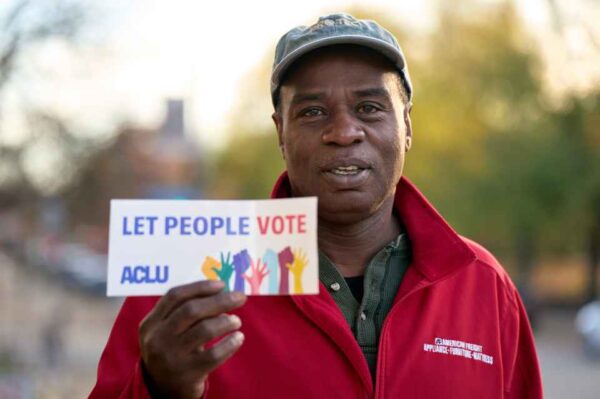
U.S. Supreme Court
Jun 2025
Voting Rights
Republican National Committee v. Genser
Voters in Butler County, Pennsylvania made a mistake in voting their mail ballots in the April 2024 primary election, forgetting to use the required secrecy envelope. Because their mail ballots could not be counted, they went to the polls in Election Day and voted provisional ballots. The County later determined that it would not count their provisional ballots, and the voter’s appealed, arguing that Pennsylvania law requires that when an eligible voter attempts to vote by mail but the mail ballot is rendered void due to some defect like lacking a secrecy envelope, the eligible voter may cast a provisional ballot and have that ballot counted notwithstanding the failed attempt to vote by mail.
Explore case
U.S. Supreme Court
Jun 2025

Voting Rights
Republican National Committee v. Genser
Voters in Butler County, Pennsylvania made a mistake in voting their mail ballots in the April 2024 primary election, forgetting to use the required secrecy envelope. Because their mail ballots could not be counted, they went to the polls in Election Day and voted provisional ballots. The County later determined that it would not count their provisional ballots, and the voter’s appealed, arguing that Pennsylvania law requires that when an eligible voter attempts to vote by mail but the mail ballot is rendered void due to some defect like lacking a secrecy envelope, the eligible voter may cast a provisional ballot and have that ballot counted notwithstanding the failed attempt to vote by mail.

North Carolina
May 2025
Voting Rights
Griffin v. North Carolina Board of Elections (Amicus)
This case arises from the November 2024 election for state supreme court justice in North Carolina. Incumbent State Supreme Court Justice Allison Riggs defeated Court of Appeals Judge Jefferson Griffin, but Griffin has filed a petition seeking to invalidate more than 60,000 votes from the election. He argues that the state Board of Elections impermissibly allowed over 60,000 people to register without providing their driver’s licenses or social security numbers, and that the Board impermissibly allowed thousands of overseas voters to cast absentee ballots without photo identification. The petition has resulted in both federal and state litigation, and the ºìÐÓÊÓƵ has submitted amicus briefs in both venues. In the U.S. Court of Appeals for the Fourth Circuit, the ºìÐÓÊÓƵ’s Voting Rights Project and the ºìÐÓÊÓƵ of North Carolina filed an amicus brief explaining that the petition’s attempt to cancel tens of thousands of votes threatens democratic backsliding in North Carolina. Separately, in the North Carolina Court of Appeals, the ºìÐÓÊÓƵ’s State Supreme Court Initiative and the ºìÐÓÊÓƵ of North Carolina submitted an amicus brief explaining that, even if the Board did make mistakes, cancelling votes as a consequence of those mistakes would violate the popular sovereignty provision of the North Carolina Constitution because voters relied on the Board to know how to register and vote.
Explore case
North Carolina
May 2025

Voting Rights
Griffin v. North Carolina Board of Elections (Amicus)
This case arises from the November 2024 election for state supreme court justice in North Carolina. Incumbent State Supreme Court Justice Allison Riggs defeated Court of Appeals Judge Jefferson Griffin, but Griffin has filed a petition seeking to invalidate more than 60,000 votes from the election. He argues that the state Board of Elections impermissibly allowed over 60,000 people to register without providing their driver’s licenses or social security numbers, and that the Board impermissibly allowed thousands of overseas voters to cast absentee ballots without photo identification. The petition has resulted in both federal and state litigation, and the ºìÐÓÊÓƵ has submitted amicus briefs in both venues. In the U.S. Court of Appeals for the Fourth Circuit, the ºìÐÓÊÓƵ’s Voting Rights Project and the ºìÐÓÊÓƵ of North Carolina filed an amicus brief explaining that the petition’s attempt to cancel tens of thousands of votes threatens democratic backsliding in North Carolina. Separately, in the North Carolina Court of Appeals, the ºìÐÓÊÓƵ’s State Supreme Court Initiative and the ºìÐÓÊÓƵ of North Carolina submitted an amicus brief explaining that, even if the Board did make mistakes, cancelling votes as a consequence of those mistakes would violate the popular sovereignty provision of the North Carolina Constitution because voters relied on the Board to know how to register and vote.
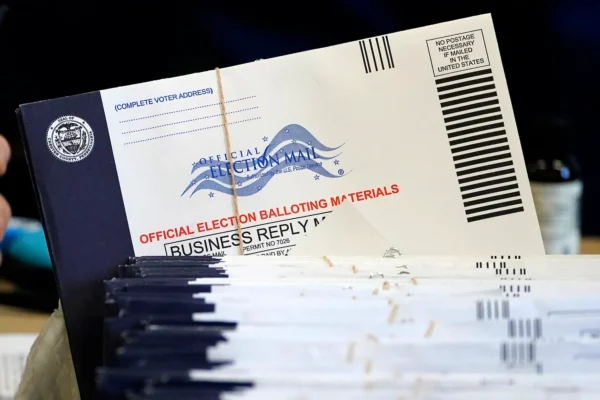
Pennsylvania Supreme Court
Mar 2025
Voting Rights
Baxter v. Philadelphia Board of Elections
Eligible Philadelphia-area voters who submitted mail ballots in the September 17, 2024 special election only to have their votes set aside because they omitted or miswrote the correct date on their outer return envelope – even though the date is not used for any purpose – sued to have their votes count. Plaintiffs urge the courts to rule that enforcing the irrelevant envelope-dating requirement to disenfranchise eligible voters violates the Pennsylvania Constitution's Free and Equal Elections Clause.
Explore case
Pennsylvania Supreme Court
Mar 2025

Voting Rights
Baxter v. Philadelphia Board of Elections
Eligible Philadelphia-area voters who submitted mail ballots in the September 17, 2024 special election only to have their votes set aside because they omitted or miswrote the correct date on their outer return envelope – even though the date is not used for any purpose – sued to have their votes count. Plaintiffs urge the courts to rule that enforcing the irrelevant envelope-dating requirement to disenfranchise eligible voters violates the Pennsylvania Constitution's Free and Equal Elections Clause.
